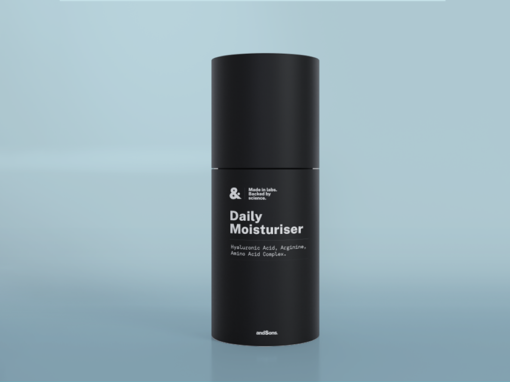Premature ejaculation (PE) is a form of sexual dysfunction in men, characterized by ejaculation that occurs sooner than desired during sexual activity. PE can be classified as primary (lifelong) or secondary (acquired), depending on whether it has always been present or developed later in life.
Several factors can contribute to premature ejaculation, including psychological factors such as anxiety or stress, biological factors such as hormonal imbalances, and lifestyle factors such as substance abuse or lack of exercise.
For premature ejaculation, treatment options include behavioural techniques, such as the start-stop and squeeze techniques, as well as medications, like selective serotonin reuptake inhibitors and topical anaesthetics. It’s important to discuss your concerns with a healthcare professional to determine the best treatment plan for your individual needs.
Overview
Premature ejaculation can be a sensitive and embarrassing topic for some men, which can lead to stigmatisation and secrecy. This can make it difficult for accurate information about the condition to be disseminated. It’s essential to seek out accurate and reliable information about premature ejaculation from reputable sources, such as healthcare professionals and scientific research, to avoid falling victim to myths and misconceptions.
10 most common myths about premature ejaculation
Here are ten common myths about premature ejaculation that you must be aware of:
1: Premature ejaculation is a rare condition
Fact: Premature ejaculation is a common sexual dysfunction that affects many men at some point in their lives. It may not be a major issue, and certain treatment methods by consulting a doctor can help to overcome it.
2: Only young men experience premature ejaculation
Fact: PE in men can affect them regardless of their age. Premature ejaculation is more common in men over 20 years.
3: Premature ejaculation is caused by a lack of sexual experience
Fact: While lack of sexual experience can contribute to PE in men, it can also be caused by other factors such as anxiety, stress, and hormonal imbalances. It is not true that only inexperienced men suffer from premature ejaculation. This medical condition occurs when the man fails to control ejaculation consistently over a while. Its severity differs from man to man.
4: Premature ejaculation is caused by a physical problem
Fact: PE in men may be the result of both psychological and physical factors. It is essential to distinguish them. That would make it easier to decide the correct treatment.
5: Premature ejaculation is not treatable
Fact: There are several pre-ejaculation treatment options available for men ejaculation, including behavioural techniques and medication. One must consult a doctor who can help improve their lifestyle without hesitation.
6: Men can experience premature ejaculation when they are unwilling to last longer
Fact: Many women often think their partners are unwilling to last longer, so they ejaculate early. But that’s not true, this medical condition is uncontrollable, and the man fails to control ejaculation. However, various pre-ejaculation treatment programs can successfully help to resolve this problem.
7: Masturbating frequently causes premature ejaculation
Fact: No evidence supports the claim that masturbating often causes premature ejaculation problem. Rather, controlled masturbation is considered an effective method of treating premature ejaculation.
8: Premature ejaculation is a sign of a lack of masculinity
Fact: Premature ejaculation has nothing to do with masculinity and is a common medical condition.
9: Alcohol can help delay ejaculation
Fact: While alcohol can help to reduce inhibitions, it can also make it more challenging to maintain an erection and can actually contribute to premature ejaculation.
10: Premature ejaculation is not a serious medical condition
Fact: Premature ejaculation can significantly impact a man’s quality of life and lead to relationship problems, anxiety, and depression. This is one of the major side effects of not ejaculating for a long time.
Conclusion
In conclusion, premature ejaculation is a common sexual dysfunction affecting men of all ages. A variety of factors, including psychological and physical issues, can cause it. There are several treatment options available for premature ejaculation, including behavioural techniques, medications, and counselling.
It’s important for men who are experiencing premature ejaculation to seek help from a healthcare professional to determine the underlying cause and develop an effective premature ejaculation treatment plan. While many myths and misconceptions surround premature ejaculation, seeking accurate and reliable information is key to understanding and effectively treating the condition.
FAQs related to premature ejaculation
Does premature ejaculation go with age?
Premature male ejaculation can sometimes improve with age, but it is not guaranteed to do so. Some men may find that they have more control over ejaculation as they get older, while others may continue to experience premature ejaculation throughout their lives. The exact relationship between age and pre-ejaculation is not well understood, and a variety of factors, such as overall health, lifestyle habits, and psychological factors, can influence the condition.
Can low testosterone cause premature ejaculation?
Low testosterone levels are not typically a direct cause of premature male ejaculation. However, testosterone is an essential hormone for male sexual health, and low testosterone levels can contribute to various sexual problems, including reduced libido, erectile dysfunction, and decreased sexual satisfaction. These issues can sometimes be related to premature ejaculation, as psychological factors such as anxiety and stress can contribute to both conditions.
Can overthinking cause premature ejaculation?
Yes, overthinking may be a possible factor of pre-ejaculation. When a man is experiencing anxiety, stress, or worry about sexual performance, it can interfere with his ability to relax and enjoy sexual activity, which can lead to premature ejaculation. Behavioral techniques such as mindfulness and relaxation exercises, as well as counselling and therapy, can help address overthinking and anxiety related to premature ejaculation.
This article is for informational purposes only and does not constitute medical advice. The information contained herein is not a substitute for and should never be relied upon for professional medical advice. Book a consultation with andSons medical team to learn more about reproductive healthcare treatments here.


